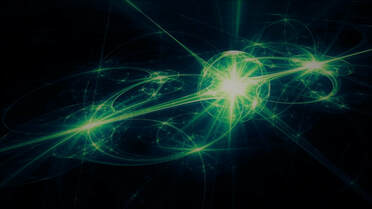|
by Terence Blake Laruelle’s project is to “quantize” Marxism. Yet his account of just what he means by the quantum thought is situated at such a high level of abstraction and of vagueness that he might just as well have projected to “magick” Marxism. His confused explanations do not explain very much as he devotes more time to proclaiming his project’s difference from any and every other well-known philosophical perspective than to elucidating his own perspective. Laruelle relies on this atmospheric presence of a set of more developped ideas in order to create in the reader’s mind a sense of familiarity and of understanding despite the abstraction and the unexplicated terminology. In his quest for an expanded “non-standard” philosophy Laruelle fails where Feyerabend succeeded. This failure is not just due to Laruelle’s persisting scientism, in the name of a science that is tautologically articulated without any attempt at confrontation with real scientific practice. It is also due to the lack of any clear account of the developments in quantum theory that he relies on. As to elaborating a non-standard “quantum” expansion of philosophy, Zizek too succeeds where Laruelle fails. An important part of this success is, as in the case of Feyerabend, that Zizek does not proceed scientistically. The quantum model is just one among several, and is overdetermined by his deployment of models taken from Lacan and from Hegel. Indeed, unlike Feyerabend and Zizek (and we may add unlike Deleuze and Guattari, who also developped a non-standard “quantum” thought) Laruelle is not forthcoming with his principles of selection. He does not explain in terms of what criteria he selects, abstracts, and transfers the particular traits of quantum theory he deems pertinent to his research programme. Badiou’s own “non-standard” philosophy makes use of the mathematical models of set theory and of category theory. These constitute no mere vague set of metaphors, but are technically correct in their details and their use is clearly justified in Badiou’s text. If we refer to Laruelle’s ANTI-BADIOU we are presented with the contrast between the appeal to the quantum model and the appeal to the set theoretic model, but we are given no real reason why one should be preferred to the other (or even to making use of both, which would be a more “democratic” procedure. It is increasingly becoming known that far from showing us the way forward to a new practice of thinking Laruelle’s thought is nostalgic. It is caught in the 60s, somewhere between Deleuze’s DIFFERENCE AND REPETITION and his LOGIC OF SENSE. The Laruelleans perpetuate Laruelle’s misreading of Deleuze, stereotyping him as a “philosopher of difference”, as they have no other critique of Deleuze that is not even more devastating for Laruelle himself. Laruelle’s failure lies in his method: seeking to escape from the sufficiency of philosophy by a scientistic supplement. Laruelle’s quixotic attempt to overcome scientism by even more scientism is doomed to failure. He deploys a form of surplus scientism intended to combat his primary scientism, resulting in greater reductionism, de-philosophisation, concept-blindness, and intellectual vice (Laruelle’s own “sufficiency is plain for all to see) disguised as its opposite. To sum up, Laruelle’s non-philosophy is scientistic and reductionist and his non-standard philosophy is no better. Both contribute to the reduction of noetic possibilities under the pretence of their expansion. The article is taken from:
0 Comments
Leave a Reply. |
Steven Craig Hickman - The Intelligence of Capital: The Collapse of Politics in Contemporary Society
Steven Craig Hickman - Hyperstition: Technorevisionism – Influencing, Modifying and Updating Reality
Archives
April 2020
|

 RSS Feed
RSS Feed
